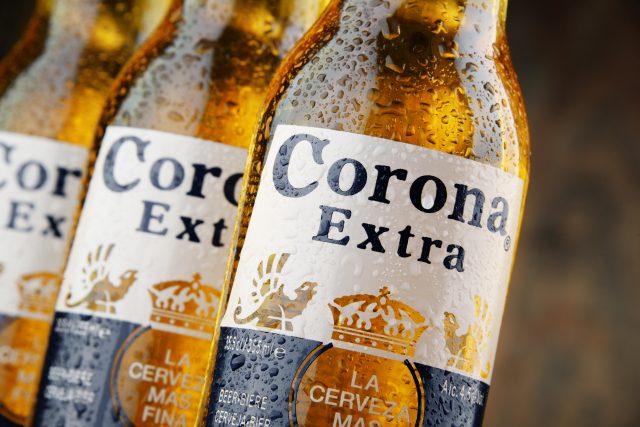Constellation’s beer division soars while wine and spirits lag behind
Sales for the booming beer division of Constellation Brands have leapt 12%, while the company’s wine and spirits sales dipped by 14%, quarterly results show.

Evidence that inflation is prompting American consumers to close their wallets and tighten their purse strings has meant that drinks group shares have been under a cloud throughout this year.
The US is the most profitable market for premium drinks so any slowdown or trading down will hit returns.
But Constellation Brands has bucked that trend and following the release of its second quarter results, its shares now stand almost 6% above its level on New Year’s Day.
Constellation’s quarterly sales rose 7%, to US$2.84 billion, compared with analysts’ average estimate of US$2.82 billion.
The company also raised its forecasts for the rest of this financial year.
It now expects comparable earnings for its full financial year to the end of February 2024 of between US$12.00 and US$12.20 per share compared with its previous profit estimate of between US$11.70 and US$12.00 per share.
Constellation’s accelerating growth over the past few years has been mostly generated by its beer division which now makes up 80% of the business.
It has ridden the wave of the Mexican beer boom, which shows no signs of slowing. In the three months to the end of August 2023, Constellation’s beer business — including brands such as Corona and Pacifico — enjoyed a 12% year-on-year increase in sales, driven by a 9% rise in shipments to retailers.
While it was given a fillip by the consumer backlash to AB InBev’s collaboration with transgender influencer Dylan Mulvaney which hit demand for Bud Light, Constellation’s Modelo Especial was already headed for the top of the US beer sales league table.
Modelo Especial’s dollar share of sales through retailers this year until mid-September was 8.5 % while Bud Light took 8.1% of that market, according to consulting company Bump Williams, which uses NielsenIQ data.
Not so rosy for wine and spirits
But not everything is set fair at Constellation, which sold off its ill-judged foray into craft beers at a US$70 million loss earlier this year.
Its wine and spirits division, which makes up about a fifth of the group’s sales and generated 16% of its operating profits last year, was hit by a 14% decline in sales in the three months to the end of August.
However, demand for premium labels such as Meiomi and Kim Crawford held up, despite a broader consumer slowdown.
Chief finance officer Garth Hankinson suggested that more cautious spending patterns were largely to blame.
“People are being a little more careful about what they do, given the inflationary environment that exists,” he said.
That echoes a comment made during an interview with Beam Suntory Holdings CEO Takeshi Niinami.
He said there has been some trading down in the US from ultra-premium to premium brands, and from premium to standard brands, as consumer confidence declines, but Niinami reiterated that premiumisation remains the correct strategy over the long term.
Partner Content
Unlike major rivals who have all increased their prices this year to combat inflation and protect margins, Constellation has been more cautious with more modest increases.
It has sought to avoid passing on inflation to consumers by exercising stringent cost controls as its cost of goods moves to more normal levels as the effects of the invasion of Ukraine diminish.
Hankinson said that while rivals have taken price increases, Constellation has chosen to keep its rises low to maintain customer loyalty.
“It’s much easier to keep your consumer than to have to go get them again if you have lost them,” he said.
The growing caution among US consumers has also been confirmed by a PYMNTS Intelligence report which showed that “57% of consumers reported having cut down on non-essential grocery spending, and one-third of grocery shoppers have downgraded from their favourite brands to save money.”
That trend is reflected in the on-trade.
Recently Raj Vennam, the finance chief of the Olive Garden, LongHorn Steakhouse and other dining brands, said that customers are trading down from premium alcoholic beverages.
He said there was a “negative mix on alcohol” in the US dining segment, with consumers “trading down to lower-priced wines and other alcohol”, in addition to “a little bit of pullback in alcohol sales” at the company’s more casual dining chains.
Related news
Ricky Gervais demands Barossa red on his tour rider




